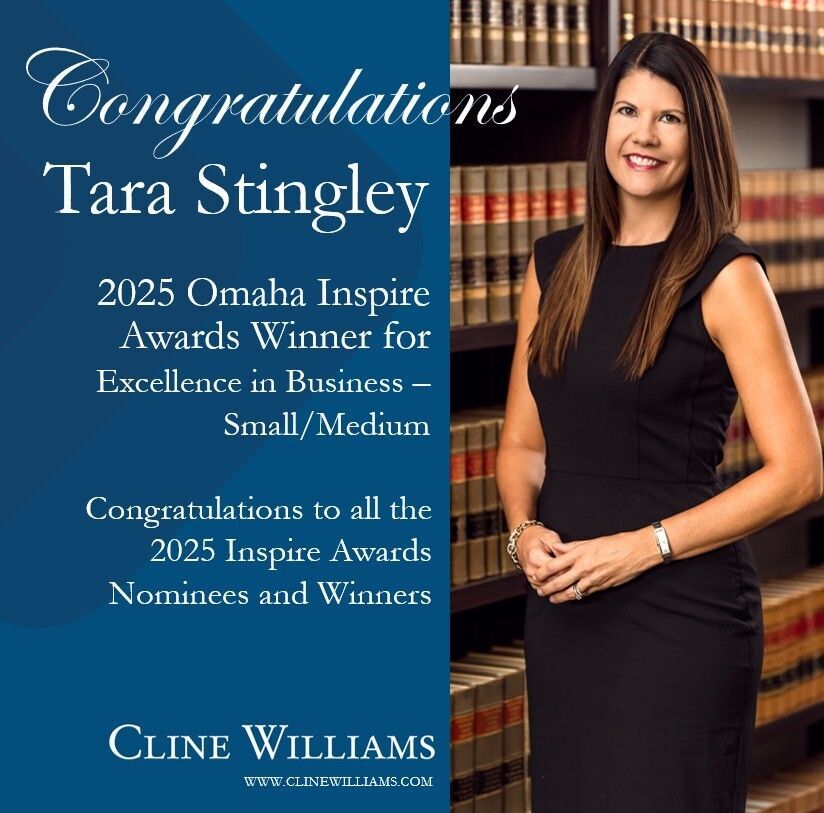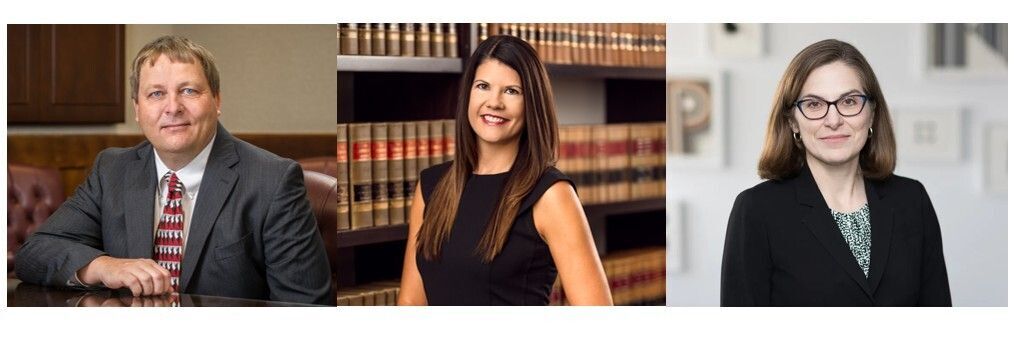On December 1, 2025, the U.S. Supreme Court heard oral arguments in Cox Communications v. Sony Music Entertainment, a case centered around the obligations of internet providers in addressing illegal actions by their users. Sony has sued Cox, rather than its users, for copyright infringement based on Cox’s failure to terminate the internet access of suspected copyright infringers. Sony won at trial and before the Fourth Circuit Court of Appeals, but during oral arguments, several SCOTUS Justices expressed reservations about holding Cox liable for the downstream actions of its subscribers.
Cline Williams is pleased to announce the firm has been recognized by Best Lawyers® "Best Law Firms" 2026. The firm received 20 rankings overall for the Lincoln and Omaha Metropolitan areas. 15 of the practice areas achieved first-tier metropolitan rankings and 5 received second-tier rankings.
Best Lawyers® “Best Law Firms” rankings are based on a rigorous evaluation process that includes the collection of client and lawyer evaluations, peer review from leading attorneys, and review of additional information provided by law firms as part of the formal submission process. A firm must have at least one lawyer recognized in the latest edition of The Best Lawyers in America® to be eligible for "Best Law Firms".
Cline Williams partner, Tara Stingley, has been named the winner of the 2025 Omaha Inspire Award for Excellence in Business – Small/Medium, announced during the October 29 luncheon at the CHI Health Center.
On September 19, 2025, President Trump issued a proclamation restricting the entry of anyone seeking to enter or reenter the U.S. in H-1B status without payment of a new $100,000 fee. The proclamation, titled Restriction on Entry of Certain Nonimmigrant Workers is effective date is 12:01 a.m. EDT Sunday, September 21, 2025, and is set to expire after one year.
Cline Williams Wright Johnson & Oldfather is proud to announce that three attorneys were named “Lawyer of Year” in the Best Lawyers in America® 2026 edition.
The U.S. Copyright Office recently released a pre-publication version of Part 3 of its Copyright and Artificial Intelligence Report series. This report focuses on training materials used to train generative artificial intelligence (“AI”), and whether developers need licenses to use third-party copyrighted works. The USCO explained that sometimes developers will need to license third-party copyrighted works, and sometimes will not need to license those works, depending largely on whether the use is considered fair. While recognizing the merits of potential government intervention to spur licensing, the Office concluded that market development of creative licensing solutions on a case-by-case basis is the best current option.
Cline Williams is proud to reveal that 30 of the firm's lawyers are listed in the Best Lawyers in America® 2026. Best Lawyers in America® are chosen through an extensive peer driven evaluation. Lawyers are recognized for their professional excellence in their area of practice. Best Lawyers: Ones to Watch, listed 3 of our attorneys. The listed lawyers, who are early in their careers, are recognized for their outstanding professional excellence in private practice.
Cline Williams is also proud to announce that three firm attorneys were selected for inclusion in the Best Lawyers in America® 2026 as “Lawyer of the Year” in their respective practice. They received this distinction based entirely upon peer ratings. Only a single lawyer in each practice area and designated metropolitan area is honored as a “Lawyer of the Year."
Cline Williams is honored to announce that partner Don Janssen has been ranked in the 2025 Chambers High Net Worth Guide for Private Wealth Law: Nebraska.
On November 5, 2024, Nebraska voters approved Initiative 436, also known as, the Nebraska Healthy Families and Workplaces Act (the “Act”). On May 28, 2025, the Nebraska Legislature passed LB 415, which clarifies and amends the Act. Employers should be aware of the changes made by LB 415 and begin preparing to comply with the Act as amended.






